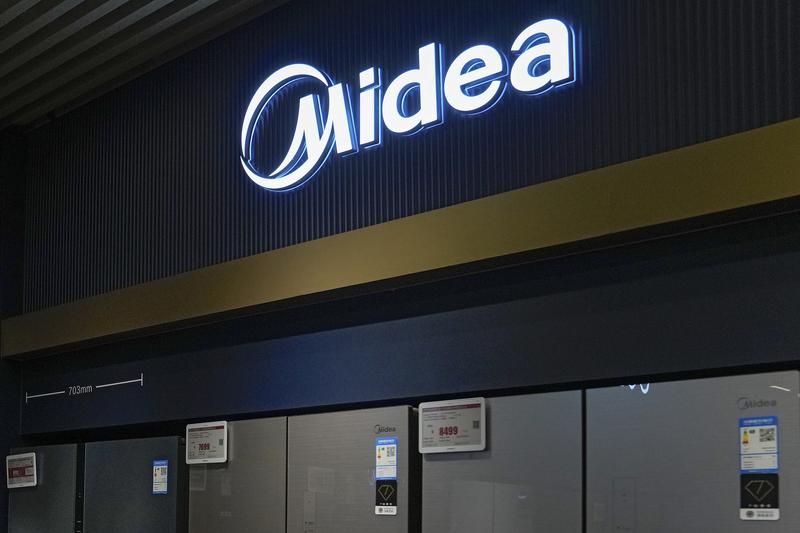 Midea's fridges are seen at an electronic shop in Beijing on Nov 15, 2021. (ANDY WONG / AP)
Midea's fridges are seen at an electronic shop in Beijing on Nov 15, 2021. (ANDY WONG / AP)
Chinese home appliance maker Midea Group is ratcheting up efforts to expand its footprint in the Middle East, establish more overseas manufacturing bases and boost brand awareness by providing products and technologies for the ongoing FIFA World Cup Finals football tournament in Qatar.
"The proportion of Midea's self-owned brands has reached 80 percent in Middle Eastern countries, with products sold in the market mainly coming from our factories in China, Italy and Egypt," said Dennis Lee, the Middle East and Africa general manager of Midea Building Technologies Overseas Sales Co.
Midea has set up an overseas office in Dubai, capital of the United Arab Emirates, and a refrigerator, washing machine and water heater factory in Egypt that serves the Middle Eastern and African markets
In recent years, Midea has been seeking opportunities to achieve localized manufacturing in the Middle East, in hopes of offering faster delivery for local consumers, Lee said.
ALSO READ: China announces reserve requirement ratio cut
The company has provided 2,500 air conditioners for 100 security check centers at the competition venues for this year's FIFA World Cup in Qatar and its central air-conditioning systems have been installed at eight venues, most of the media centers and some supplementary facilities.
"Participating in the projects of world-class sporting events will help Midea cultivate its international vision and localized operation team, enhance brand awareness and accelerate our globalization process," he said, adding that Chinese companies have grown into main participants of international sporting events.
There is a huge demand for air conditioners in the Middle East due to its high temperatures and humidity, Lee noted. In 2010, Midea invested $57.48 million to acquire a 32.5 percent stake in Egypt's major air conditioner supplier Miraco to become the company's second-largest shareholder.
The company has set up an overseas office in Dubai, capital of the United Arab Emirates, and a refrigerator, washing machine and water heater factory in Egypt that serves the Middle Eastern and African markets.
ALSO READ: 6 major Chinese state banks agree to boost real-estate market
"We will continue to offer low-carbon, energy-saving and intelligent building solutions for the Middle Eastern market, speed up our localization efforts, especially in the business-to-business segment, and employ more local people engaged in sales, technology service, finance and operations in the future," Lee said.
The Foshan, Guangdong province-based company will concentrate on Egypt, Iraq, Saudi Arabia and the United Arab Emirates, deepen cooperation with local partners, step up investment in research and development as well as expand retail channels in these markets, he said.
The demand for high-efficiency heating ventilation air-conditioning systems for medium and large-sized projects is soaring, according to Midea. "In recent years, Saudi Arabia, the United Arab Emirates and Qatar are paying more attention to the construction of green energy systems and energy-saving, stable products, which will bring about important opportunities for our overseas expansion," Lee added.
ALSO READ: China-US joint venture unveils fleet brand of cruise ships
Zhou Nan, secretary-general of the China Chamber of Commerce for Import and Export of Machinery and Electronic Products home appliances branch, said the Middle East and Africa serve as important markets in the Belt and Road Initiative, presenting huge growth potential for enterprises to build self-owned brands and develop cross-border e-commerce.
Despite geopolitical instability, Chinese enterprises have not slowed their pace of development in these countries, Zhou said.
Liang Zhenpeng, a consumer electronics analyst, said setting up production bases in overseas markets not only brings China's advanced manufacturing, research and development as well as management capabilities to overseas markets, but creates job opportunities for local people and enhances the competitiveness of Chinese enterprises in the global market.


